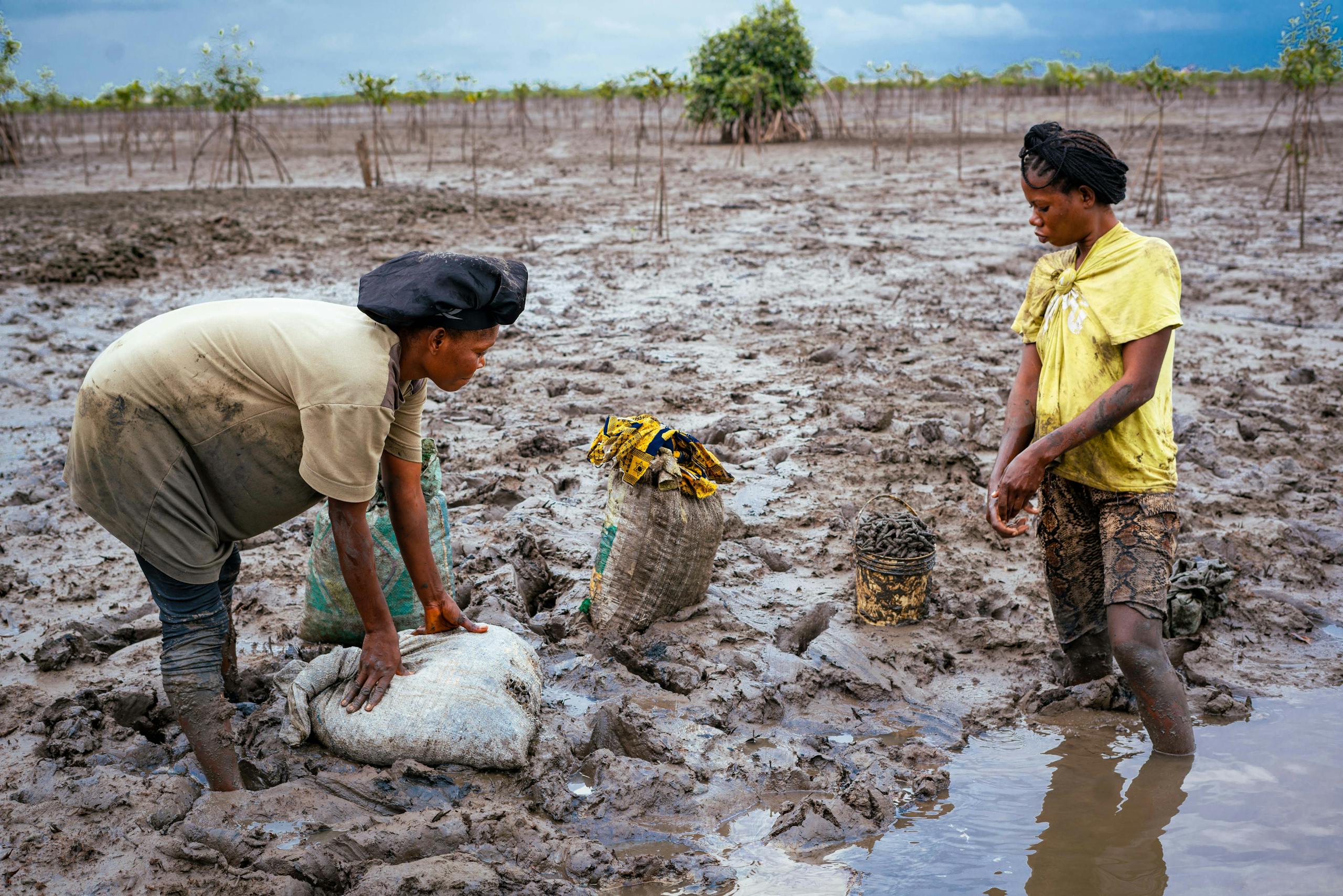Photo of two women harvesting in a muddy field by Abdulrahman Abubakar via Pexel.
African Migrant Laborers Need Jubilee
Burdensome public debt in the continent has induced African youth to migrate for employment driving greater risks of exploitation and modern slavery.
Young people from African countries are under intense pressure by the local economies to look aboard in their search for work that provides a living wage and dignified life for themselves and their families. For many young adults in Sub-Saharan Africa, the dream of securing what is considered a “decent job” is not possible in their home countries, where governments are forced to spend more on debt repayments to the IMF and other international lenders than on climate, health and education priorities.
Stressed by the urgent need to find work, a growing number of young people from Africa are responding to advertisements to work abroad, joining the demographic of “migrant workers” around the world. While some elected officials in Europe say that African migrants are “overwhelming” society there, in fact, according to the International Organization for Migration, the total number of African migrants worldwide was 40.6 million. This is only 14.5% of the global migrant population, much less than Asia’s (41.0%) and Europe’s (22.5%) shares.
Much more significant is the growth in the number of remittances, which are the funds migrant workers send to their families in their home countries to be used to meet basic needs. Over the last decade, remittance flows to Africa doubled, reaching over $100 billion in 2022, a sum which exceeded the total of all development assistance the continent received that year. Remittances provide a lifeline for many families, especially in rural areas where they can make the biggest difference.
But behind the increase in migrant laborers and their remittances is a troubling cycle of exploitation and abuse, especially in the Persian Gulf. Horrific stories of African migrant workers subjected to poor working conditions, exploitation, and inhumane treatment akin to modern-day slavery are widespread.
“I was desperate for a job,” said Joy Simiyu, one of a growing number of Kenyans who travel to the Gulf to seek work. Simiyu told an advocacy and aid organization called Human Trafficking Search that she faced a torrent of abuse while in Saudi Arabia—that she was forced to work in multiple homes, deprived of food and rest, her wages, and denied timely payment because she was “not doing enough work to demand pay” or because she “was not going nowhere.”
Ethiopian, Kenyan, and Ugandan workers migrate to Saudi Arabia and all Arab Gulf states but Iraq under a legal framework called the kafala system that has for decades defined their relationship with their Arab employers. It was created to supply cheap, plentiful labor in an era of booming economic growth, and its defenders argue that it benefits local businesses and helps drive development.
The kafala system has become increasingly controversial, the Council on Foreign Relations reported in 2022, as stories of exploitation are shared over social media and investigated by journalists covering international events. “The lack of regulations and protections for migrant workers’ rights often results in low wages, poor working conditions, and employee abuse. Racial discrimination and gender-based violence are endemic. Global anti-racism protests, the COVID-19 pandemic, and preparation for the 2022 FIFA World Cup in Qatar helped to expose the kafala system’s flaws, but the future of reform efforts remains unclear.”
The kafala system ties workers’ legal status to their employers, leaving migrants vulnerable to forced labor, wage theft, sexual and physical abuse, and even death. There have been incidences of employers confiscating workers’ passports, trapping them in conditions reminiscent of indentured servitude.
The Global Slavery Index reports that Arab states have the highest per capita prevalence of modern slavery, with more than 10 people per 1,000 trapped in forced labor, sex trafficking, or forced marriage. While Saudi Arabia’s 2021 Labor Reform Initiative introduced some changes, such as allowing workers to change jobs under certain conditions, these reforms largely exclude domestic workers—the most vulnerable group.
Despite documented widespread abuse, East African governments continue to normalize the export of labor. Kenya, for example, signed many agreements with Gulf states amid reports in Kenyan media of domestic workers dying under suspicious circumstances. Uganda processed thousands of migrant worker contracts in 2024 despite suspending its labor agreement with Saudi Arabia in 2023 due to abuse.
During this Jubilee Year of Hope, Pope Francis calls on wealthy nations to cancel the unjust and unsustainable debts of developing countries. The Turn Debt into Hope campaign for Jubilee 2025 is not only a significant movement for the economic well-being of development countries, but also an important response to the cries of African migrant laborers.

